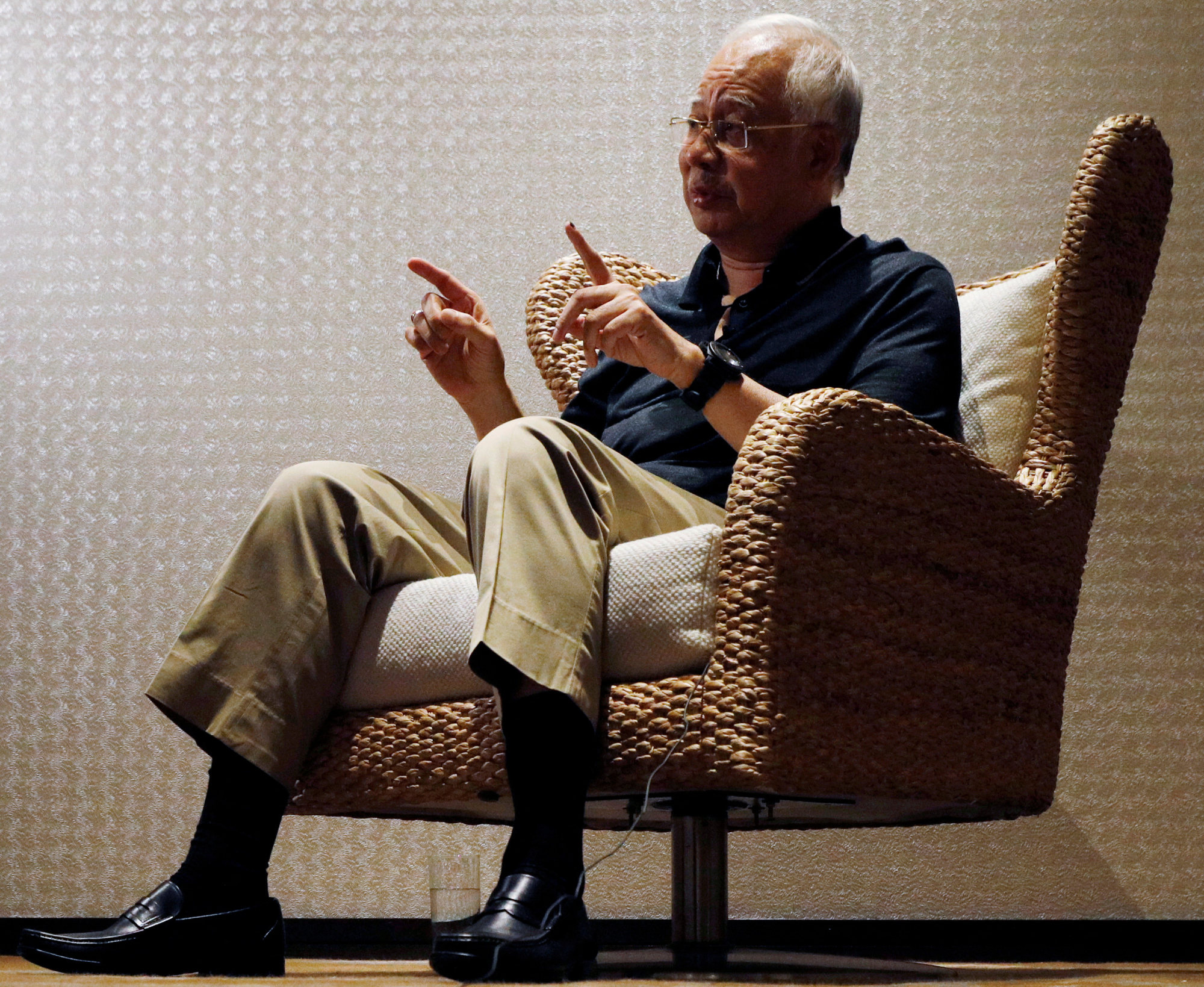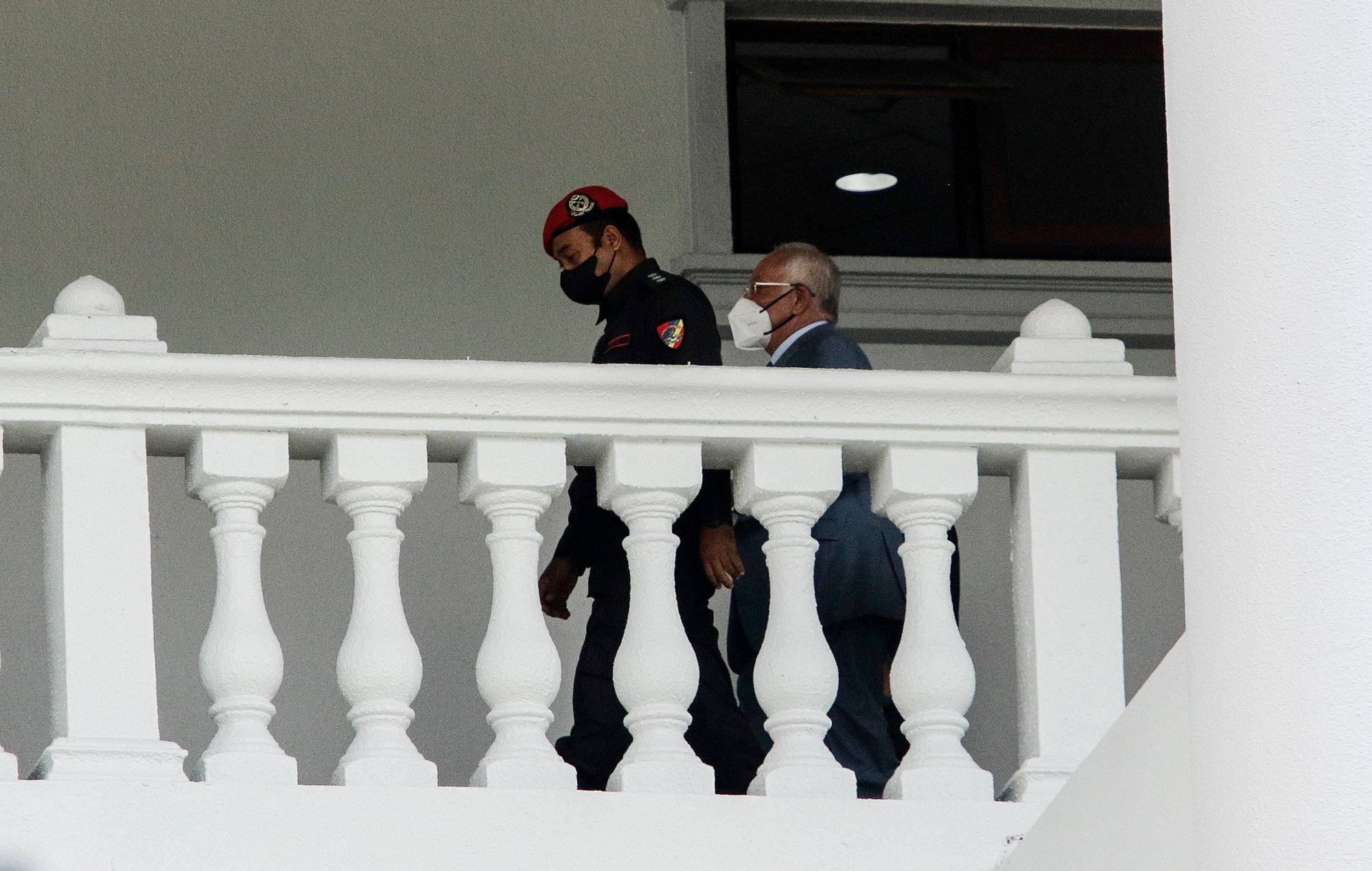
Malaysia’s ex-PM Najib’s eventual conviction shows feudalism not forever
- The former prime minister was riding high, and from a gilded and privileged background, until he began to be seen as unfair and corrupt
- Once he began losing people’s support, it was only a matter of time before nation’s feudalism was overridden and he was put behind bars
But he was not in handcuffs or an orange jumpsuit, as per usual MACC procedures. He had not spent the night at the MACC lock-up like other accused. Instead, Najib walked into court in his trademark navy blazer and a striking red tie, surrounded by guards and supporters.
This summer, shortly before he finally lost his appeal against his 2020 conviction for corruption, Najib still left his luxurious home surrounded by bodyguards and was greeted by a legion of loyal supporters at the court entrance.
Throughout the legal process, Najib received treatment that would not usually be available for a convict of a serious crime. He was allowed to pay his bail of 2 million ringgit (US$438,000) in instalments, whereas other accused have had to pay it outright or risk being detained in custody.
His almost never-ending requests for delays and adjournments were also honoured, as was his frequent absence and treating the courtroom like a cafe, sometimes sipping on a coffee.

After returning home from his British education, he took over his father’s parliamentary seat as the youngest ever elected representative at 22, before making the cabinet at 25, and becoming, at 29, the youngest ever chief minister in the resource-rich state of Pahang.
The privileged bubble Najib lived in was the only universe he knew. Everywhere he went, he was surrounded by aides and devotees who were ready to bow and scrape and kiss his hands. He never had to do much for himself. A friend who travelled with him to Europe told The New York Times in 2016 that Najib did not know how to check in for flights or even find his departure gate, and he never had to pack his own suitcases.
Part of the reason Najib enjoyed unlimited access to power and wealth, which made him virtually untouchable, was the psychological feudalism of Malaysian society. The late sociologist Syed Hussein Alatas described this as a personal attachment to a leader rather than the principles he/she stood for. A subject is supposed to be loyal under almost all circumstances even if the leader’s norms, ethics, and values are in conflict with his or her own.

An extreme example of this is found in Sejarah Melayu, several centuries old and the oldest written source on Malay life. Within its pages it is revealed that Sultan Mahmud Shah, who died in 1528, ordered the murder of Bendahara Seri Maharaja after hearing a rumour, which was not investigated, that the minister wanted to usurp the throne.
The Bendahara advised his family not to resist his fate. When his son wanted to attack the sultan’s messengers, the Bendahara shouted at him, saying there was no disloyalty in Malay tradition. The Bendahara was then dispassionately killed. Loyalty to the powerful ought to come before your own life, so his thought process apparently went.

Although institutions have changed over the centuries, the joint legacy of feudalism and British colonialism meant that in Malaysia, like in most of Asia, the power distance between authority and subordinates remained vast. In fact, Malaysia’s power distance index, a measurement of the acceptance of a hierarchy of power and wealth, is one of the highest in the world, standing at an astronomical 100 on the Hofstede scale; some countries only register in the low double digits in comparison.
A high score means hierarchy is accepted without justification, and subordinates are expected to follow orders without question. Challenging authority is frowned upon, and everyone knows their place.
Unique conditional feudalism
However, if feudalism was overpowering, how did Malaysia eventually end up putting their blue blood former prime minister, Najib Razak, behind bars?
In a 1972 article Syed Hussein Alatas mentioned an important nuance of Malaysian feudalism. He said even though the nation’s people were loyal to their masters, they were only this way inclined if the master was fair, generous, patient, courageous, and protective. In other words, feudalism depends on a leader’s good conduct and being accepted by his/her citizens.
The example the sociologist gave related to forced labour, where working for no pay was deemed abhorrent and unfair to ethnic Malays. Thus, when the Raja’s (ruler’s) elephants came into the jungle peasants would go into hiding, to avoid being called upon to form part of the entourage.
When Najib delivered his modernisation plans at the start of his premiership in 2009, loyalty to him was strong because he was regarded as fair and caring at that time. Feudalism always starts with unquestioning loyalty. But, once details of the 1MDB scandal increasingly came to light, with incredible spending sprees circulating on the web, Najib began to be seen as not serving the people’s best interests.
Loyalty was conditional and with the trust firstly ebbing, then eventually disappearing, Najib is no longer wearing an expensive tailored jacket. He now lives much of the time in his cell with a single fan, however hot it gets. He is finally a convict subject to the Prisons Act 2000. His titles are gone. He can no longer have his favourite caramel macchiato from Starbucks.
Najib Razak abused his office but he has nothing on Chinese prime ministers
Malaysians have long lived with this twin value system that is unique to the land – absolute loyalty to the powerful, and an expectation of justice and fairness of its leaders. Once trust is broken, a quiet defiance is expected.
As Justice Nazlan Ghazali said in his High Court judgment, “No one, not even one who was the most powerful political figure, and the leader of the country, enjoys a cloak of invincibility from the force of the law.”


